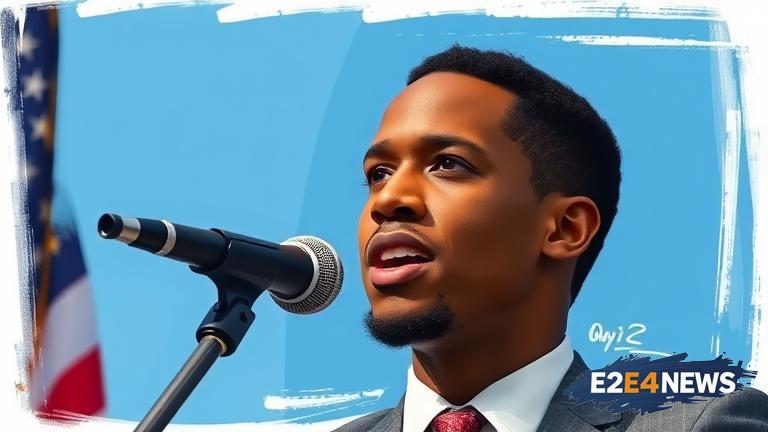CJ Pearson, a prominent conservative activist, has made headlines with his provocative claim that liberals are racist towards black Americans. This statement has sparked a heated debate across the nation, with many weighing in on the validity of his assertion. Pearson’s comments have been met with both support and criticism, highlighting the deep-seated divisions within the country regarding racial issues and political ideologies. The young activist’s statement has been seen by some as a bold move to challenge the status quo and spark a necessary conversation about the complexities of racism and its intersection with politics. Others, however, have condemned his words as divisive and misleading, arguing that they oversimplify the nuanced issues surrounding race and racism in America. The controversy has led to a renewed examination of the role of liberalism and conservatism in addressing racial disparities and inequalities. Many have pointed out that racism is a multifaceted issue that cannot be attributed solely to one political ideology, emphasizing the need for a more comprehensive and bipartisan approach to tackling racial injustices. Despite the backlash, Pearson remains steadfast in his beliefs, citing what he perceives as hypocrisy and double standards within liberal circles regarding issues of race. His stance has resonated with some members of the conservative community, who feel that their concerns about racial issues are often dismissed or marginalized by liberal counterparts. On the other hand, liberal advocates argue that their policies and initiatives are geared towards addressing systemic racism and promoting equality, contrary to Pearson’s assertions. The debate has also touched on the historical context of racism in America, with some arguing that the legacy of racism is deeply intertwined with conservative ideologies, while others contend that liberalism has failed to adequately address these issues. Furthermore, the discussion has highlighted the importance of listening to and amplifying the voices of black Americans, who are disproportionately affected by racial injustices. It has also underscored the need for constructive dialogue and collaboration across political lines to forge effective solutions to these pressing issues. Pearson’s comments, while controversial, have contributed to a broader conversation about the political landscape and its impact on racial relations. Critics argue that his approach is counterproductive, alienating potential allies and reinforcing harmful stereotypes. Supporters, however, see his activism as a necessary challenge to the political establishment, pushing for a more honest and inclusive discussion about race. The reaction to Pearson’s statement reflects the polarized nature of American politics, where issues of race are often caught in the crossfire of ideological battles. Moving forward, it will be crucial to distinguish between political rhetoric and the tangible, everyday experiences of black Americans, focusing on policies and actions that can bring about meaningful change. Ultimately, the controversy surrounding CJ Pearson’s comments serves as a reminder of the complex, evolving nature of racial discourse in America, emphasizing the need for empathy, understanding, and a commitment to addressing the deep-seated racial inequalities that persist in society. As the nation continues to grapple with these challenges, it is essential to approach the conversation with sensitivity, respect, and an openness to diverse perspectives, recognizing that the path to racial equality and justice is fraught with challenges but necessitates collective effort and dedication. The ongoing debate sparked by Pearson’s assertion will undoubtedly continue, reflecting the broader, ongoing struggle for racial justice and equality in America. It is through this struggle, marked by controversy and challenge, that the country may move closer to a more equitable and just society for all its citizens. The importance of CJ Pearson’s statement, therefore, lies not in its divisiveness, but in its ability to prompt a national reflection on the state of racial issues and the political ideologies that shape them, urging Americans to consider their roles and responsibilities in the pursuit of a more perfect union.
